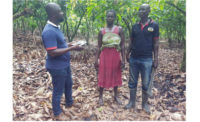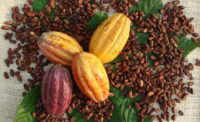The Rainforest Alliance and UTZ, two of the world’s leading sustainability certification organizations, will merge later this year.
The new organization, which will retain the name Rainforest Alliance, will operate as one global certification standard, simplifying certification for farmers and empowering companies to build more efficient and responsible supply chains.
"Our missions are very similar, to work with farmers and communities in an effort to protect the natural environment and help mitigate the effects of climate change on a global scale,” says Nigel Sizer, current president of the Rainforest Alliance. “By uniting with UTZ, and partnered with SAN, we will combine our strengths to expand our impact on improving the lives of farmers and forest communities, protecting biodiversity and championing companies that are on the path to sustainability."
Drawing from the strengths of the Sustainable Agriculture Network and UTZ standards, the future sustainability standard will also mean a single auditing process for certificate holders. Streamlining the certification process will also help new farmers and the 182,000 cocoa, coffee and tea farmers currently certified under both standards to invest more efficiently in sustainability, avoiding a double administrative load of working with two standards and certification systems.
Adopting the name ‘Rainforest Alliance’ helps foster recognition by consumers. Once the two organizations have merged, Han de Groot, current executive director of UTZ, will be the ceo of the Rainforest Alliance. Sizer will take on the role of chief program officer for advocacy, landscapes and livelihoods.
The future Rainforest Alliance will continue to be a member of the Sustainable Agriculture Network, working in partnership with other organizations to promote sustainable agriculture.
"The challenges we work on are more urgent than ever: climate change, deforestation, systemic poverty, and inequality are increasingly intertwined with the way we manage land and produce food and forest products,” de Groot says. “The future Rainforest Alliance will have a bigger reach and stronger voice, allowing it to better protect the natural environment and allow farmers, businesses and consumers to make even more responsible choices, more easily.”





